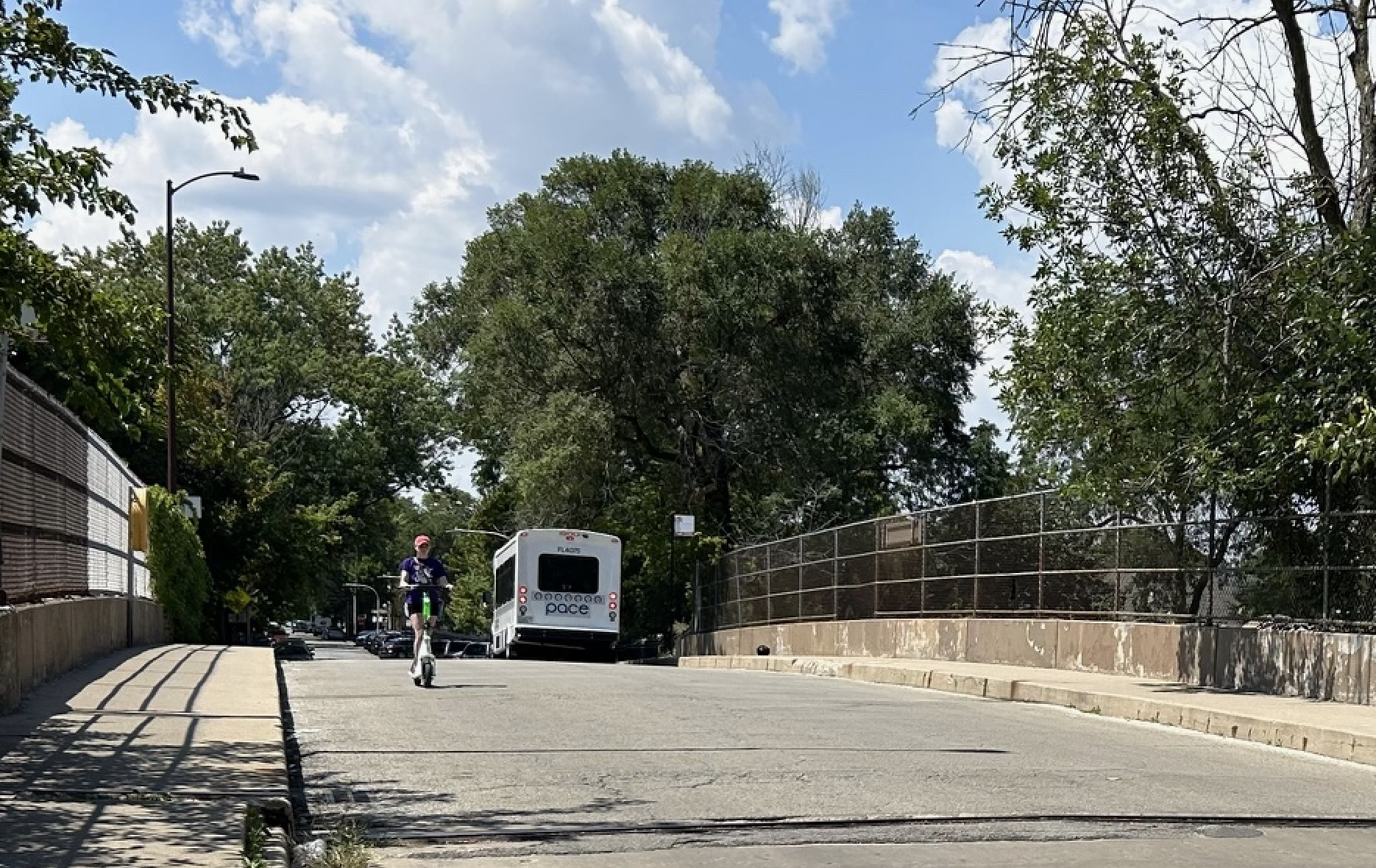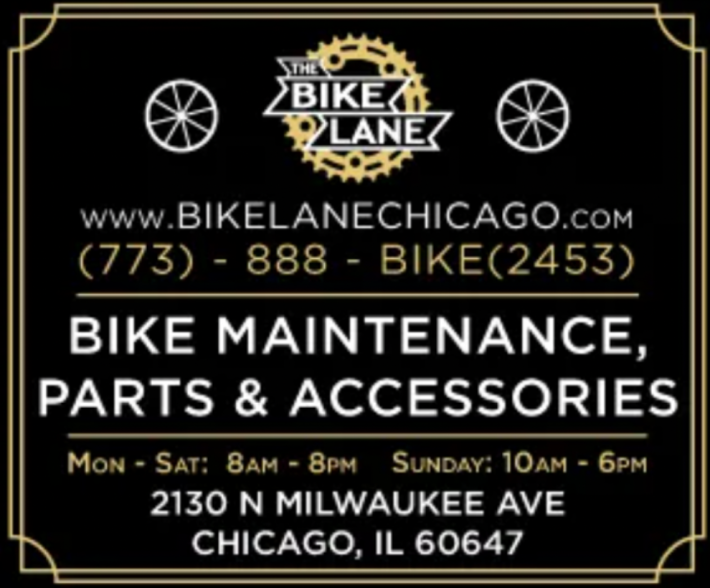
Argyle Street at the Chicago River is a bustling little road segment tucked into a quiet, residential corner of the Albany Park neighborhood. The Argyle bridge connects parkland on either side of the North Branch of the Chicago River. The span is located two blocks north of Lawrence Avenue, the southern terminus of the North Shore Channel Trail. Bicyclists, pedestrians and drivers all share the narrow Argyle bridge which is, for the moment, two-way east-west. But that may be about to change.
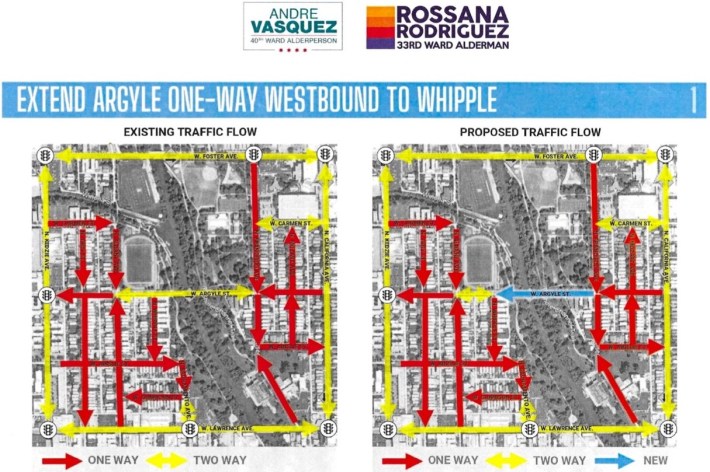
The Chicago Department of Transportation, along with the 33rd Ward, west of the river, and the 40th Ward, east of the waterway, recently announced a proposal to convert Argyle Avenue to one-way westbound from Francisco Avenue to Whipple Street, immediately west of the river. Ald. Rossana Rodriguez represents the 33rd and Ald. Andre Vasquez represents the 40th.
Currently Argyle is one-way westbound east of Francisco, and one-way westbound west of Albany Street, but two-way in between those roads. The proposal would make all of this stretch of Argyle one-way westbound, except for a one block between Albany and Whipple next to a soccer field and running track serving nearby North Park University.
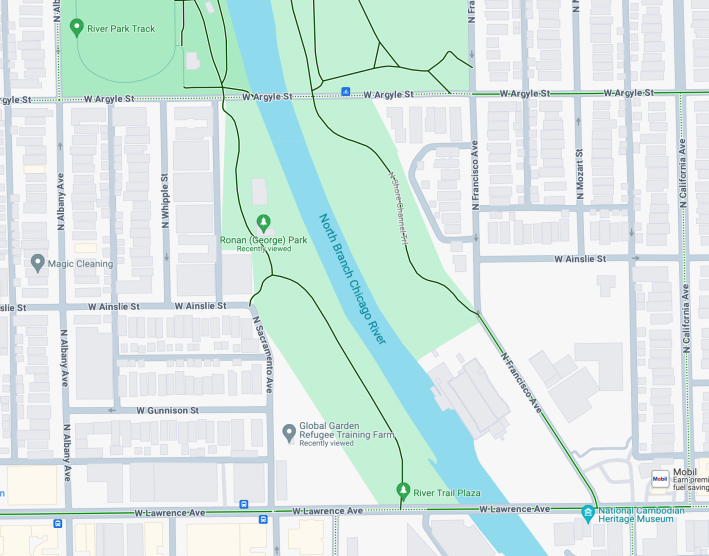
So why would this be done? Alison Murphy, director of communications and development for Ald. Vasquez’s office, said the ward had received complaints from residents that the street is too narrow for two-way traffic. Neighbors said the bridge is too narrow for car drivers to navigate in both directions. The jockeying of motorists across the bridge is further complicated by bike and pedestrian crossings between the adjacent parks. There were also complaints of cars parked on Argyle being sideswiped, and drivers ignoring the one-way westbound designation east of Francisco, and continuing to drive eastbound on Argyle, causing crash dangers.
The 40th Ward recently held a community meeting to gather feedback, which is being shared with CDOT to inform the new street design. No details on the new layout are available yet. Right now, the bike route on Argyle over the bridge is marked by faded bike-and-chevron "shared lane" road markings, also called "sharrows". Murphy said it’s difficult for two drivers to pass each other in opposite directors, let alone if there are also bike riders on the street at the time.
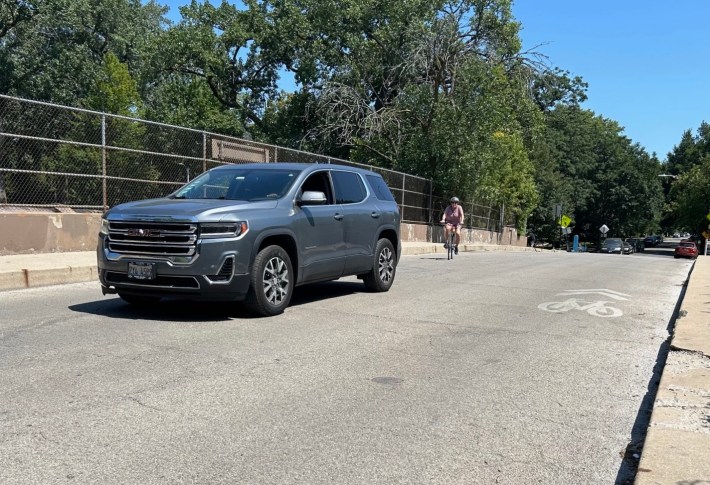
Neighbor and longtime bike advocate Robert Kastigar said he's opposed to the proposed change. He wrote to Streetsblog that the conversion would interfere with bicyclists traveling northbound from Lawrence on the west side of the river and crossing the bridge eastbound from the west side of the river to the east. He he pointed out that making Argyle one-way westbound here would force them to ride against motorized traffic in order to continue north on the trail. Kastigar also expressed concern that converting more of Argyle to one-way westbound would encourage drivers to speed. Kastigar suggested CDOT consider building a separate bike-pedestrian bridge over the river.
On the other hand, one person recently riding a bike over the Argyle bridge told Streetsblog she is in favor of the one-way conversion. The rider, who lives in the Old Irving enclave and preferred not to give her name, said she has ridden on the trail for a decade. She felt the one-way conversion would accommodate and raise awareness of all road users. "Few drivers slow down," she said. "It’s a main crossing for kids, bicyclists, strollers. People are getting more aware with new crosswalks, but we have a long way to go. I’m all for it.”
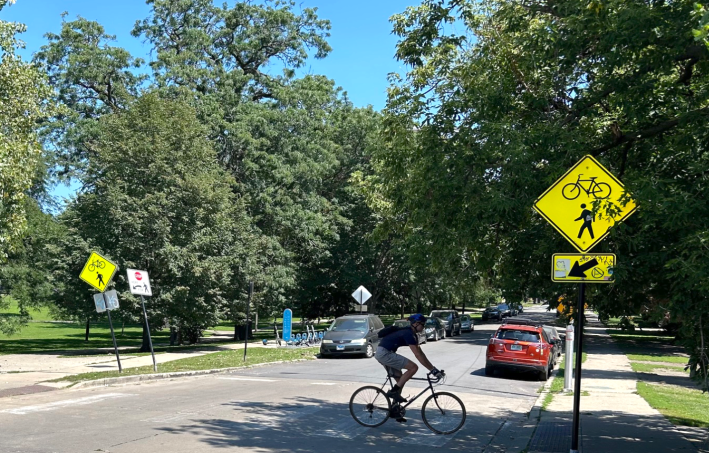
Haley LeRand said she drives down Argyle daily to her job at the Global Garden Refugee Training Farm, 4815 N. Sacramento Ave., located on the north side of Lawrence, just west of the riverfront parkland. LeRand said, "It’s crazy to me that [Argyle at the bridge] is not already a one way. I mean, if I see a [driver] in the distance when I’m driving west and they are heading east, I already know we both won’t be able to get through. And they frequently don’t stop for the cyclists on that path before the bridge."
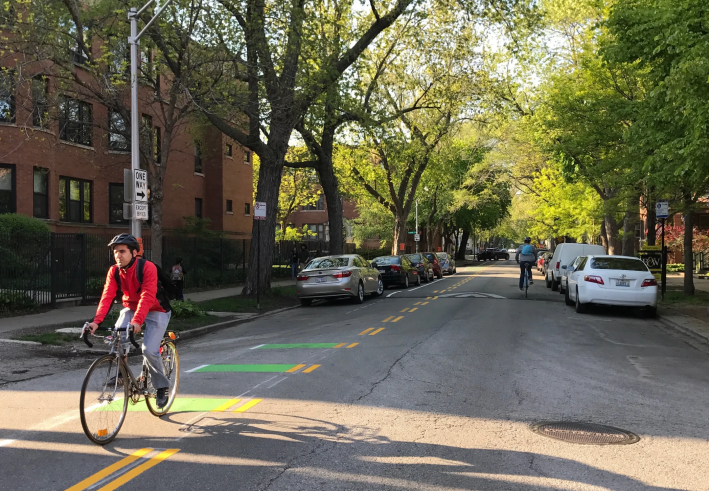
The proposal to convert Argyle to one-way westbound seems like a good way to relieve congestion at a busy pinch point and lower stress for people traveling on foot and bikes. However, barring the construction of a dedicated bike-ped bridge, the City must provide a safe alternative for eastbound bike and e-scooter riders. The 40th Ward's Alison Murphy didn't say whether an eastbound contraflow ("wrong-way") bike lane would be added but, assuming there's no bike-ped span, an eastbound bikeway should definitely be should be a part of the plan.
Murphy encouraged anyone with questions or concerns to fill out the feedback form about the project.

Did you appreciate this post? Please consider making a tax-deductible donation, to help keep Streetsblog Chicago's sustainable transportation news and advocacy articles paywall-free.
